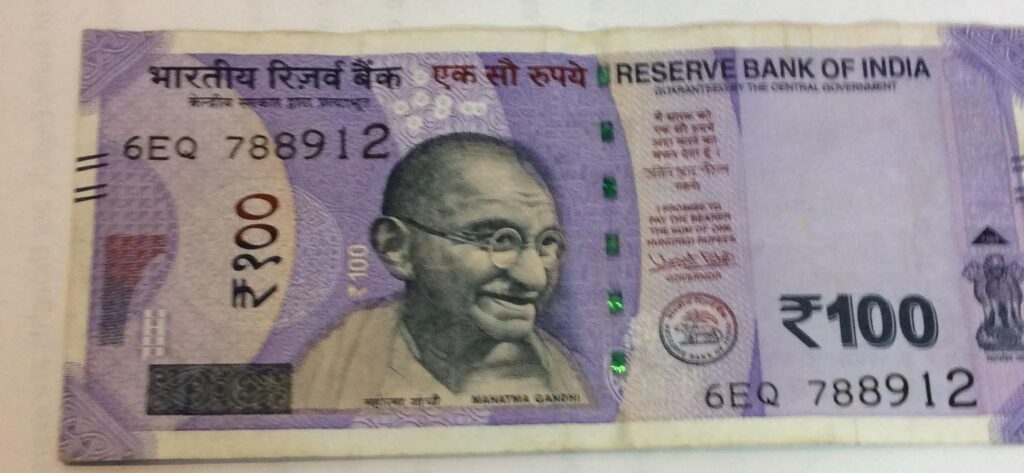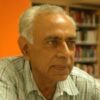Second October — A day of Peace, Harmony
TRANSCEND MEMBERS, 27 Sep 2021
Dr. Ravi P. Bhatia – TRANSCEND Media Service
Most people would know that this was the day that Gandhi was born in Porbander in Gujarat (west coast of India) in 1869. The house where he was born is maintained in its original form although there is a nearby Museum which is modern and has photographs and other memorabilia.
This day — 2 October is now internationally recognised as the International day of Nonviolence and for promoting Peace, Justice and Harmony. This is because
Mohandas Gandhi (full name) struggled peacefully all his life against colonialism, racism, injustice and any other means of maltreating people. He respected all religions although he himself claimed that he was a devout Hindu. He followed the principles of the Indian epic Bhagwad Gita that promoted truth, nonviolence and brotherhood. He had written many articles and a few books on the principles of this epic.
In fact, Gandhi used to write regularly on various issues that affect mankind. He wrote a famous book Hind Swaraj or Indian Home Rule in a week in 1909 while he was returning from England to S Africa in a ship using the ship’s stationary. Originally it was written in his mother tongue Gujarati but has since been translated in many world languages.
He acquired many virtues — such as cleanliness and regular fasting and respecting other religions, partly from his mother Putlibai Bai and through his struggles in South Africa where he stayed 21 years and saw discrimination and injustice directly. He himself occasionally was a victim of many forms of racial and unjust behaviour by the powers that were in the country. In order to strengthen his resolve against injustice and discrimination, he devised means that he termed as peaceful resistance or what is now generally known as Satyagraha — struggle for truth.
Gandhi’s virtues of Nonviolence, truth and non exploitation had been admired by several people including Nelson Mandela, Bishop Tutu of S. Africa and Martin Luther King Jr of USA. Many other world leaders such as Albert Einstein, Nobel Laureate Rabindranath Tagore, admired Gandhi’s virtues and the values he promoted. In fact it is suggested that Tagore was the first person who referred to him as Mahatma. It is also said that he went to Africa as Mohandas but returned to India in 1914 as Mahatma.
Gandhi promoted education that comprised not only the basic aspects— reading, writing and simple arithmetic, but also various skills. He also promoted education for girls who were generally denied schooling and education in India. An important aspect of education was his emphasis on cleanliness and non exploitation of the Earth’s resources. In that sense he may be considered as one of the earliest environmentalists.
The Ashram (simple farmhouse or home) that he lived in was always clean and open to fresh air and sunlight. A famous one was Sabarmati Ashram where he resided often and from where he carried out the historic Dandi March in March 1930 against the imposition of salt tax by the British Rulers. The Dandi March continued for 25 days and Gandhi and his followers walked a total distance of 241 miles. On reaching the shore at the end of the Dandi March, Gandhiji and his followers were brutally hit by sticks on their bodies. Much later the salt tax was discontinued.
One can write much more about Gandhi’s struggles, Satyagraha and other values that he promoted steadfastly. Unfortunately, he was shot dead by a bigot who thought Gandhiji was doing bad for the country, on 30 January 1948. His last words were He Ram — the name of our legendary God.
However, India considers him as the Father of the Nation and has built statues and other memorials in many parts of the country. Gandhi’s picture is also printed on all Indian currency notes.
A photo of a 100 rupee currency is enclosed.
A full sized statue was constructed a few years back in the University of Delhi which also has an institution named Gandhi Bhawan for promoting Gandhian thought.
For a person like me, I feel proud that I was born in the country of Gandhiji.
 ______________________________________________
______________________________________________
 Dr Ravi P Bhatia is a member of the TRANSCEND Network for Peace Development Environment, an educationist, Gandhian scholar and peace researcher. Retired professor, Delhi University. His new book, A Garland of Ideas—Gandhian, Religious, Educational, Environmental was published recently in Delhi. ravipbhatia@gmail.com
Dr Ravi P Bhatia is a member of the TRANSCEND Network for Peace Development Environment, an educationist, Gandhian scholar and peace researcher. Retired professor, Delhi University. His new book, A Garland of Ideas—Gandhian, Religious, Educational, Environmental was published recently in Delhi. ravipbhatia@gmail.com
Tags: British Colonialism, British empire, Gandhi, History, India, Nonviolence, Satyagraha, South Africa
This article originally appeared on Transcend Media Service (TMS) on 27 Sep 2021.
Anticopyright: Editorials and articles originated on TMS may be freely reprinted, disseminated, translated and used as background material, provided an acknowledgement and link to the source, TMS: Second October — A day of Peace, Harmony, is included. Thank you.
If you enjoyed this article, please donate to TMS to join the growing list of TMS Supporters.

This work is licensed under a CC BY-NC 4.0 License.